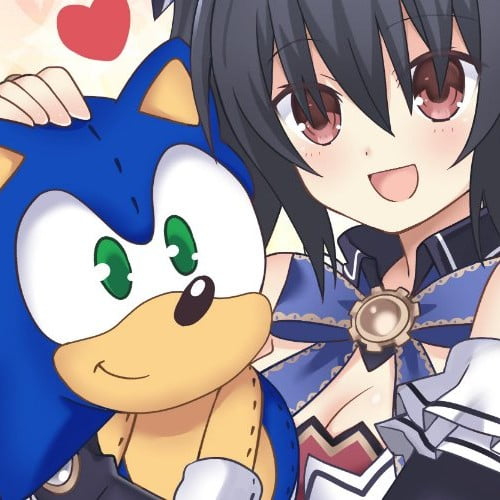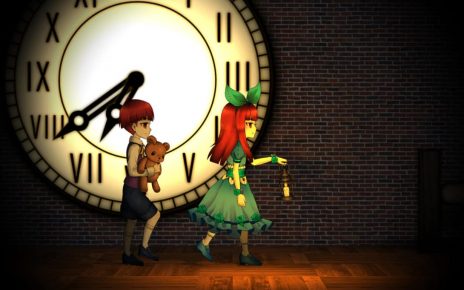It feels like it’s been forever since Inti Creates last made a fully original series. Although recent installments in Gunvolt, Blaster Master, and Gal Gun have been keeping them busy, I was left hoping for something new. Those prayers have been answered in the form of Umbraclaw, from the same minds who brought us Blaster Master Zero.
Nine Lives
Our heroine, Kuon, was your everyday housecat who (probably) loved her owner to bits. Unfortunately, she was killed well before her time and sent to where all souls go in death—the Soulplane. Here, she’s presented with two options: either fight to live again or remain in peaceful death. With her dedication to her owner driving her, she sets off to collect the keys needed to escape the Soulplane. Along the way, she’ll have to contend with monsters and other fallen animal spirits to get back to the real world. The only comfort she’ll receive during this ordeal are the occasional, faint memories of her owner.
This is a pretty bizarre premise, even for platforming standards, but it works to wonderful effect. Kuon doesn’t say a word, but the story is still rich with musings about the nature of life and how abrupt death can feel. Kuon’s desperation to get back her owner also manifests in its own branch of drama. Even while fighting in what’s essentially Hell, Kuon is still not much more than a defenseless house pet. The Soulplane does grant her incredible power, but it’s at the cost of her personhood. So that begs a question, is giving up yourself worth it if it means having another shot at life?

Since Kuon is a mute protagonist, this question is never answered and is instead something the player themself should think about. Kuon’s fate is then something that rests in the hands of how the player feels about her circumstances. Perhaps some might feel that returning to life isn’t worth it if it means being the same weak cat who will still just die again. Perhaps others will think that power could lead to isolation and unhappiness. It’s this lack of a definitive answer that makes the story so nuanced.
Life in Death
Umbraclaw provides some interesting choices near the start of the game. After completing a brief prologue section, you’re given options for how you want to play the game. You can choose between an easy mode where Kuon will be endlessly revived with no penalty, a roguelike mode where a game over means starting over, or a balanced option between the prior two. Personally, I went with the roguelike option since I feel that best reflects the game’s theme, but it’s good that options are available.

Kuon is a simple house cat who can’t do much. She can run, wall jump, crawl under surfaces, and scratch nearby enemies for low damage. She also has access to a dash maneuver, allowing her extra speed and the ability to phase through enemies and obstacles. Mastering this dash is the key to getting anywhere in this game, as even a single hit means death for Kuon.
…Or at least it would, but cats luckily have nine lives. Upon each death, Kuon will revive and instantly kill every enemy in the room (minus bosses). On top of that, each death will also give Kuon access to a new skill. Your phasing dash may change into a charge that stuns enemies, or you may gain access to a passive dodging ability to make platforming easier. Be careful, however, as it’s game over once all nine lives are expended.

Helping Kuon along are items that can be collected in various hard-to-reach parts of every level. These are basic things, like upgrading your damage output or how many resources you can expend on special moves. Upgrading is a bit uninteresting, but finding the items themselves is at least pretty gratifying.
Kuon’s Demons
When Kuon dies enough times, she’ll enter a humanoid form. While at first you can reject this transformation, dying too many times will eventually force the transformation on you. In her humanoid form, Kuon can take multiple hits, deal more damage, and has access to much better offensive tools like projectiles. Seems like a great deal, right? Well, not entirely. Kuon can’t crawl or use her phase dash skill in this form, locking her out of many areas that contain upgrades or shortcuts. Staying in this form for too long will also steadily make her forget about her owner, Tsukumo.

The big issue with Umbraclaw’s gameplay starts with Kuon’s humanoid form. It’s just not very fulfilling to play with. The overall feel of moving around in it is pretty good, but attacks lack impact and skills don’t have any synergy between each other. Dying and reviving to get a new skill didn’t really have that sense of weight that it should have had because the skills themselves weren’t all that fun to use. Even in the roguelike mode, this form is simply too powerful and sucks all of the challenge out of the game. Maybe that’s the point from a thematic standpoint, but it just didn’t land for me. In my entire run through the game, Kuon’s humanoid form never once felt as gratifying to play as her feline form.
Between these two modes, I’m left with the sense that Umbraclaw’s mechanics don’t really mesh well together. There’s plenty of cool ideas here individually, but when put together they don’t tend to add up to much. This even extends to the boss battles. While excellent in their presentation, they wound up not being terribly fulfilling to engage with outside of the occasional moments where the mechanics did align well.

These problems also extends to the level design, which have a lot of individually neat stage gimmicks that are dragged down by haphazard enemy placement. Sometimes the stage gimmicks themselves wound up being a little too passive and generic too, especially the water-based levels. Waiting around for geysers to take me to-and-fro just got a bit boring after a while. Overall, while Umbraclaw’s core gameplay is rarely bad, it’s also seldom more than serviceable.
A Painting of Hell
In terms of production values, visuals, and especially sound, it’s my firm belief that Umbraclaw is the most sophisticated game in Inti Creates’ entire career. The game’s presentation is just an absolute treat. Eschewing their typical pixel aesthetic that calls to mind 90s platformers, Umbraclaw instead goes for an inspired painterly aesthetic. It mixes exaggerated comic stylings with abstractions and hard colors, to what I feel is a very striking final picture. The bosses and creatures also benefit from this, with the main enemies looking nasty and exploding into gore-y chunks upon defeat. The bosses, due to story reasons, look a lot like Kuon in her humanoid form. If I didn’t know any better, I’d think they were protagonists of their own games.

Where Umbraclaw really shines is in its voice acting, specifically the English track. Pound-for-pound, it’s some of the best voice acting I’ve heard from this genre in general. From the narrator who gives the whole story a sort of tragedy theater edge, to the incredibly hammy deliveries of the bosses characters, it’s fantastic stuff. The character Stuart in particular absolutely chews up the scenery with his performance. It made the story all the more engaging, and helped in getting me excited to meet new characters—all just to hear how they sounded.
The soundtrack itself is also great stuff. Again unlike what Inti Creates is typically known for, most of Umbraclaw’s soundtrack uses soft instrumentation. There’s piano, light jazz, and some horn accompaniment to help punctuate the lonely feeling of the adventure and its solemn subject matter. Overall, when combined with my prior praises for the story, I think this is definitely a game best enjoyed for its atmosphere and vibe, rather than mechanics.

Verdict
Umbraclaw is perhaps the artsiest game Inti Creates has ever made. From its great art direction to its fantastic voice acting, it genuinely caught me off guard with how much was put into the simple look and feel of the game. Better still is that this is all in service of a genuinely great story with a lot to say. It’s to a point that this is one of the rare platformers where story explicitly and strongly informs the gameplay. Gameplay winds up being where the game falls somewhat short, as it is simply undercooked, if still perfectly serviceable. Honestly, though, I’m fine with that. Through whatever issues it may have, Umbraclaw proves that a game can truly be more than the sum of its parts.
UMBRACLAW IS RECOMMENDED

If you are interested in another adventure-platformer, consider checking out TEVI.
Many thanks go to Inti Creates for a PC review code for Umbraclaw.

A hobbyist who took up the pen to write about their favorite pastime: games. While a lover of many genres, Isaiah Parker specializes in Platformers, RPGs, and competitive multiplayer titles. The easiest way into his heart is to have great core gameplay mechanics. Self-proclaimed world’s biggest Sonic fan. Follow him @ZinogreVolt




